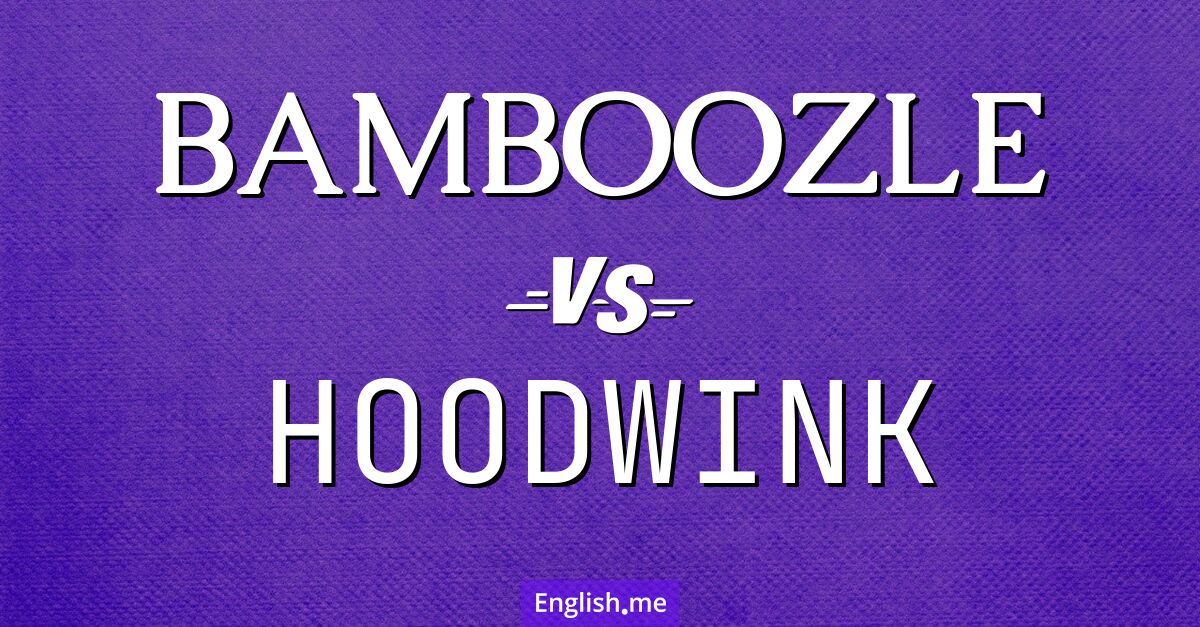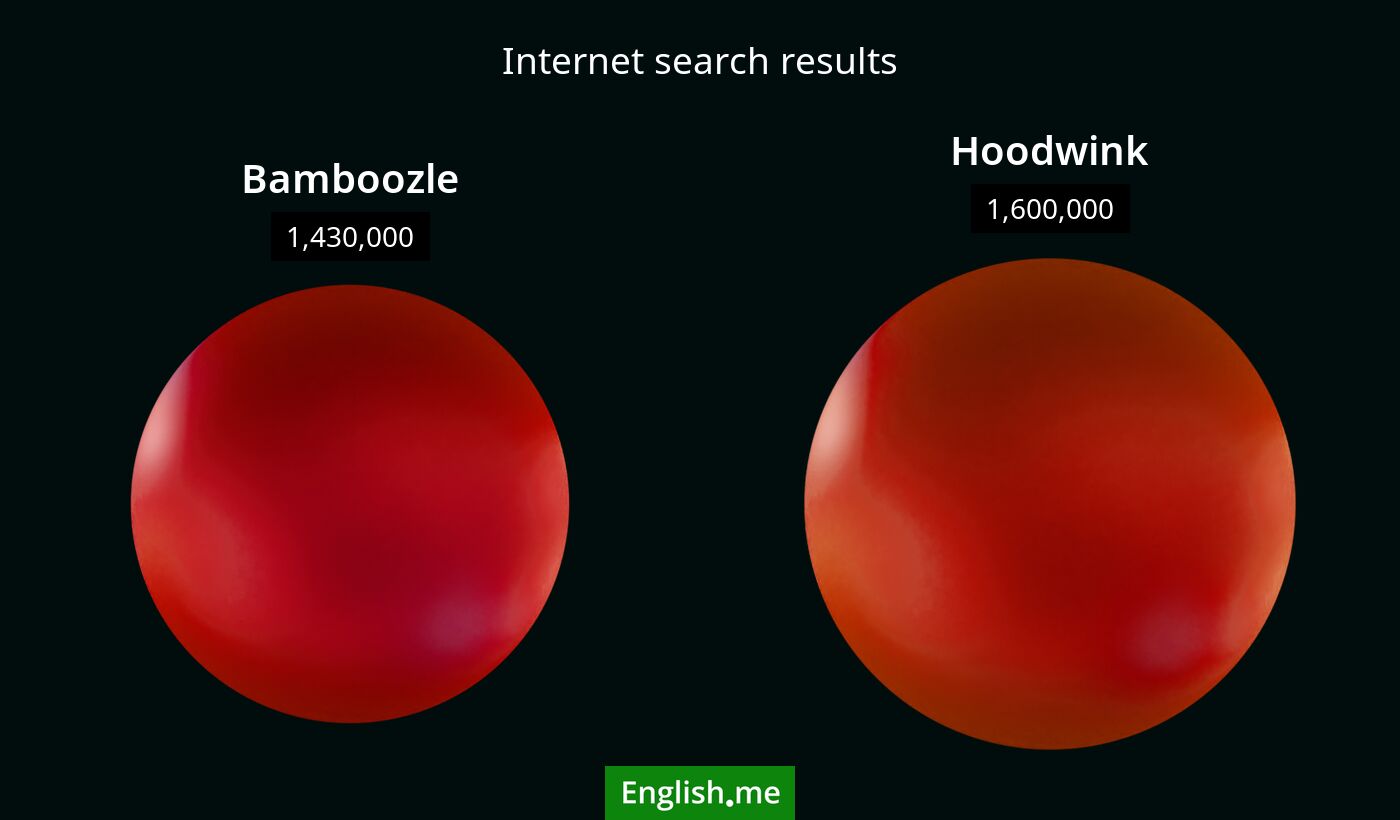Deceptive duo: "bamboozle" vs. "hoodwink"
Reviewed and edited by  Lloyd Cooper 08/10/2024, 00:08
Lloyd Cooper 08/10/2024, 00:08
English.me team member

 What is similar?
What is similar?
Both "bamboozle" and "hoodwink" mean to deceive or trick someone. They are used to describe the act of misleading someone through deceit.
 What is different?
What is different?
The difference between the two words lies mostly in their connotations and usage. "Bamboozle" is often used informally and can have a playful or lighthearted implication, whereas "hoodwink" is a more formal term and can imply a more serious or deliberate act of deception.
 Which one is more common?
Which one is more common?

 Examples of usage
Examples of usage
Bamboozle- The salesman tried to bamboozle me with jargon.
- She was completely bamboozled by the magician's tricks.
- Don't let them bamboozle you with fancy words.
- He attempted to hoodwink the investors by exaggerating returns.
- They were hoodwinked by the imposter's elaborate disguise.
- The scammer hoodwinked many unsuspecting victims.

 English
English español
español française
française italiano
italiano deutsche
deutsche 日本語
日本語 polski
polski česky
česky svenska
svenska Türkçe
Türkçe Nederlands
Nederlands